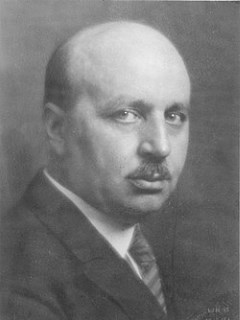This document is unfortunately not available for download at the moment.

Karl Bühler
Karl Bühler is one of the most important German-language psychologists of the 20th century. His career reached its peak at the University of Vienna, where in 1922 he was appointed on one of three chairs in philosophy focussing on Philosophy, Psychology, and Experimental Pedagogics and became director of the university’s newly founded psychological institute. During his tenure – which abruptly ended after the annexation of Austria in 1938 – the institute would go on to become one of Europe’s most prominent. In its complex diversity, Bühler’s work is not only illustrative for important moments in the constitution of psychology as a scientific discipline but contains theoretical ideas as well as series of empirical experiments yielding to rich insights for current discussions in psychology, linguistics, human sciences, philosophy of mind, and philosophy of language.
Theory of language
The representational function of language
Karl Bühler
Translated by Donald Fraser Goodwin
Karl Bühler (1879–1963) was one of the leading theoreticians of language of the twentieth century. Although primarily a psychologist, Bühler devoted much of his attention to the study of language and language theory. His masterwork Sprachtheorie (1934) quickly gained recognition in the fields of linguistics, semiotics, the philosophy of language and the psychology of language. This new edition of the English translation of Bühler’s theory begins with a survey on ‘Bühler’s legacy’ for modern linguistics (Werner Abraham), followed by the Theory of Language, and finally with a special ‘Postscript: Twenty-five Years Later …’ (Achim Eschbach). Bühler’s theory is divided into four parts. Part I discusses the four axioms or principles of language research, the most famous of which is the first, the organon model, the base of Bühler's instrumental view of language. Part II treats the role of indexicality in language and discusses deixis as one determinant of speech. Part III examines the symbolic field, dealing with context, onomatopoeia and the function of case. Part IV deals with the elements of language and their organization (syllabification, the definition of the word, metaphor, anaphora, etc).



